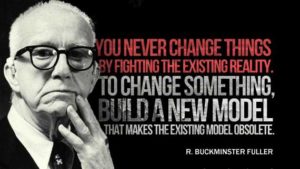Detention dilemmas in refugee week
June 19th, 2016 | Published in Asylum; Refugees
It is, I find, impossible to celebrate refugee week (19-25 June) in Australia while offshore detention persists and asylum seekers are denied their human rights.
I found myself, instead, thinking about the dilemmas of detention work – for workers themselves, as well as the rest of us.

Detention dilemmas for workers
Mark Isaacs writes from his experience: “If you ever happen to work in an offshore detention centre like Nauru you will work closely with a group of people who previously you only knew of through the media. The stereotypes and rhetoric will disappear and you will be faced with real people and their stories.”
- You will encounter moral dilemmas most Australians never anticipate.
- You will see the gradual degradation of the human spirit.
- You may see suicide attempts.
- You could, if you are unfortunate, see someone killed.
- You are likely to raise concerns but they will go nowhere.
- You will realise detention is meant to make people suffer.
- You will try to achieve small wins for people.
- You will know what you’re doing is not enough.
- You may want media involved but access is blocked.
- You have signed a deed of confidentiality.

- You cannot un-know what you know.
- You have flashbacks and nightmares.
- You decide to speak out and risk the consequences.
- The rigmarole begins: “Interviews and photos and emails and messages and internet trolls and abuse and talks and speeches and a constantly ringing phone. You are criticised and praised and you are left wrung out, exhausted, used and drained. And you are forgotten.
And at the end of the day did people listen?
Did you really change anything?”
Workers as collateral damage of the detention system
Those who oppose offshore detention understandably (and rightly) mostly focus on the people seeking asylum who are actually held in detention centres, but workers are also collateral damage of our brutal systems.
They are constrained by their contracts and the potential consequences (2 years jail) of speaking out. They are also constrained by an ethos that proscribes speaking of their pain. They are meant to appreciate how lucky they are and to stand strong and invincible.
Is it ethical to work in detention centres?
The first comment registered on Mark Isaacs’ article, as published in Mamamia, asked: “While the UNHCR, the head of the UN, our own Human Rights Commissioner, Amnesty, our courts and Human Rights Watch have screamed out loud for decades that jailing refugees is illegal, why do people take jobs that enable the prisons to continue?”
This is an understandable question, and no doubt one that most people (including Mark Isaacs) who have worked directly with asylum seekers have asked – “Am I just helping to prop up an abusive system? Would it be better if we all withdrew and forced political change to occur?”
Isaacs) who have worked directly with asylum seekers have asked – “Am I just helping to prop up an abusive system? Would it be better if we all withdrew and forced political change to occur?”
This is the central dilemma of working with individual pain when the change needed is at the broad sociopolitical level.
But, it’s not either-or I’ve decided over the journey. It’s both-and. We need to do what we can to aid everyday survival of those who are suffering in our detention centres. We also need to work to change the policies.
We are not doing a great job of either – addressing the personal pain or creating sociopolitical change – but we have been up against a formidable bipartisan political adversary, which will seemingly stop at nothing to assert control of our borders.
We could, as a country, do this differently, and we can’t give up trying to achieve this.
In the meantime, I feel for the workers like Mark Isaacs, and think about the consequences for them. Are they adequately supported? What might I do to help, I ask myself – for them, the people in detention, and all those in need of refuge.

Scroll down for comments
First-time comments have to be moderated. I try to complete that process within 24 hours. Do check back. I greatly value involvement, always read comments, and respond to most. After your first comment, subsequent ones should appear automatically.
Social justice is for everyone (previously 2020socialjustice) is also on Facebook (click here)
And Twitter (click here)



